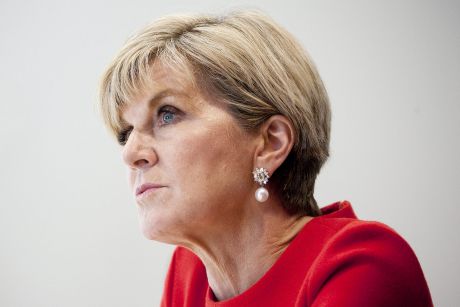
Julie Bishop condemns colleagues over China extradition treaty collapse
Julie Bishop has delivered a blast to the backbench rebels, questioning their trust in Australia's own legal and political system.

James Massola is chief political correspondent in the Canberra bureau. He has worked in the federal press gallery for eight years, including stints for The Australian Financial Review and The Australian before joining the Sydney Morning Herald and The Age.

Julie Bishop has delivered a blast to the backbench rebels, questioning their trust in Australia's own legal and political system.

The federal government was scrambling to land a company tax-cut deal on Thursday, with a marathon late-night Senate sitting threatening to spill over into an extended sitting on Friday.

Some of Australia's largest companies have made a desperate, last-minute plea to the Senate crossbench to pass $48 billion in company tax cuts, warning Australia had no alternative to secure its nation's economic future.

"Hugh Bartley and his classmates are better men than Mark Latham has ever been."

At 8.40am on Tuesday, just minutes after Julie Bishop had publicly backed a China extradition treaty and walked into a meeting of the leadership group, Bill Shorten rang Malcolm Turnbull.

A Turnbull government plan to ratify the China-Australia extradition treaty has collapsed, with mounting opposition from the Coalition backbench causing the government to withdraw the treaty from Parliament.

Foreign Minister Julie Bishop and Justice Minister Michael Keenan have moved to quell a backbench revolt over a China-Australia extradition treaty.

The federal government could secure three crucial votes from the Nick Xenophon Team for its company tax cut plan, but only if it adopts a politically contentious emissions intensity scheme for the electricity sector.

More voters back the Turnbull government's $50 billion plan to cut company taxes than oppose it, in findings the Coalition will seize on ahead of a decisive Senate vote this week.

Labor now holds a thumping 10 point lead over the Coalition in the two-party preferred vote.
Search pagination